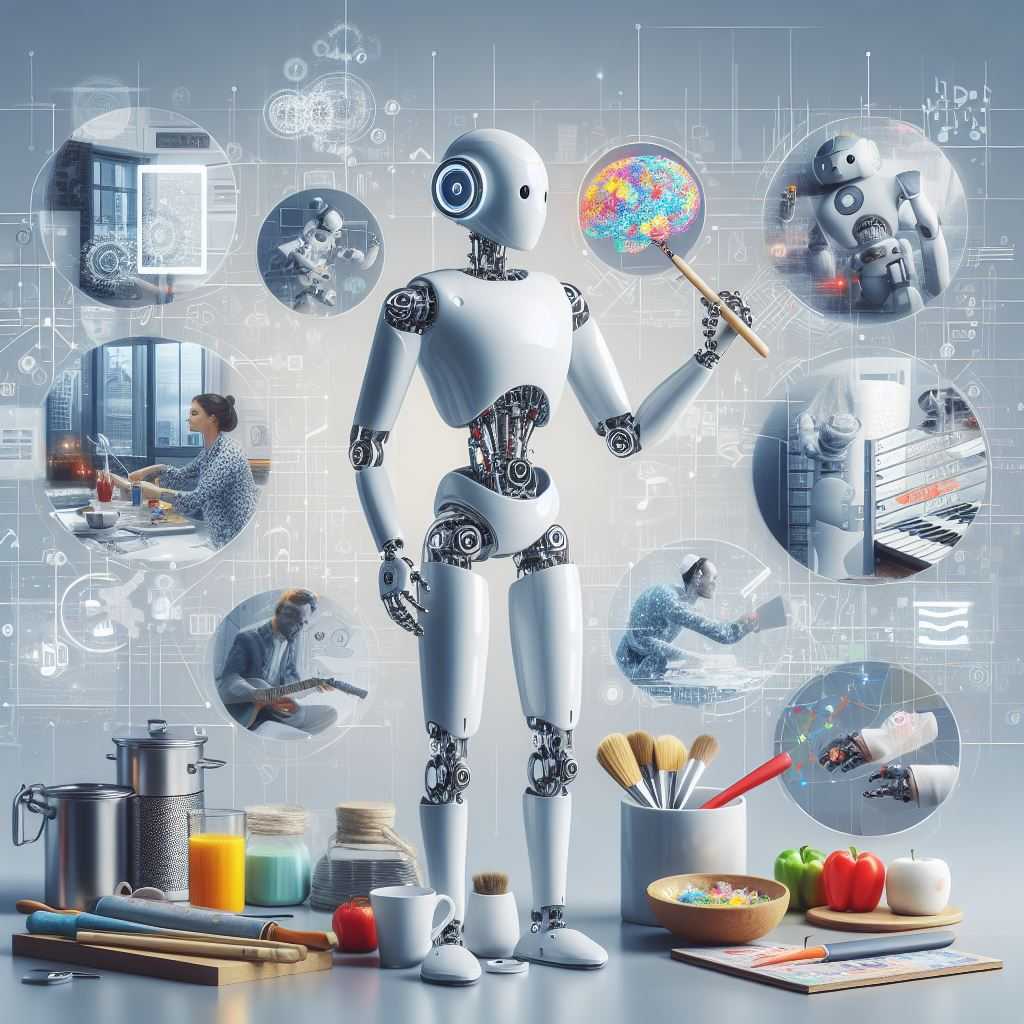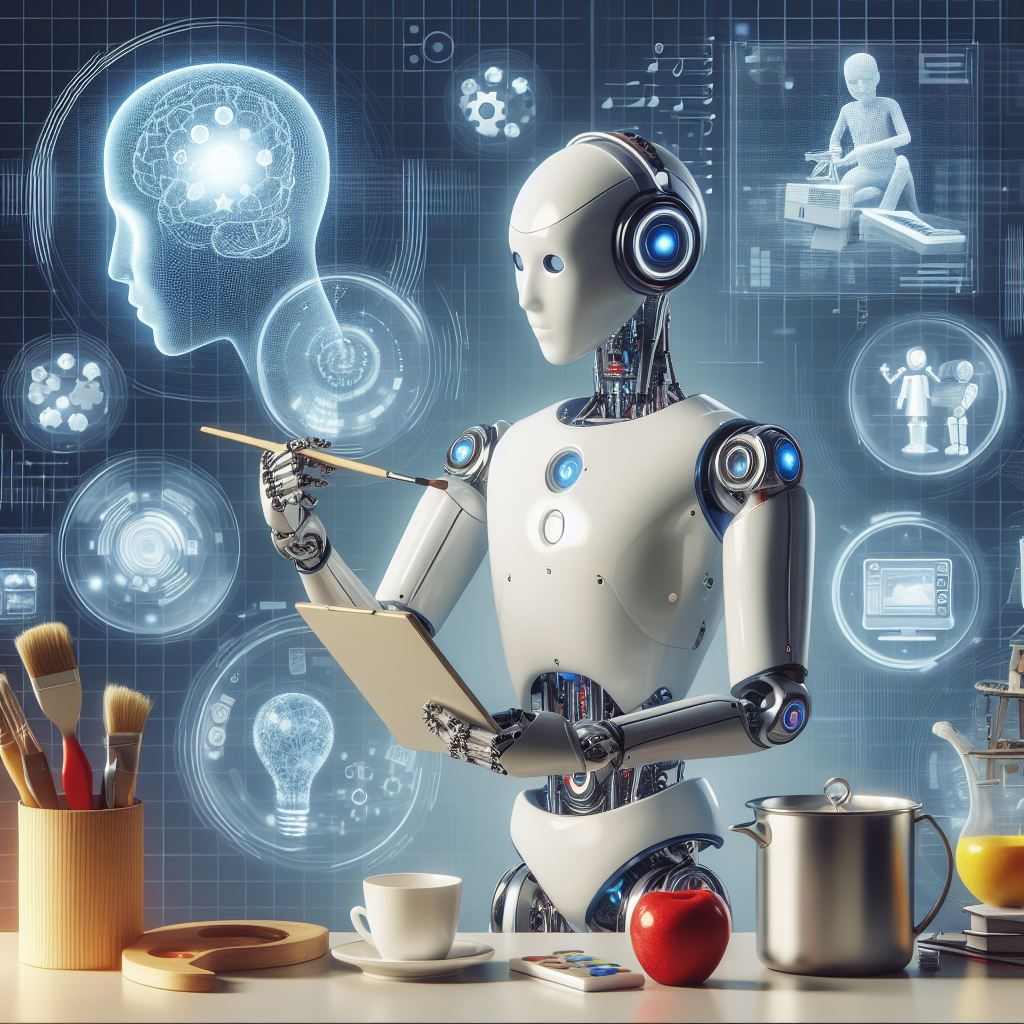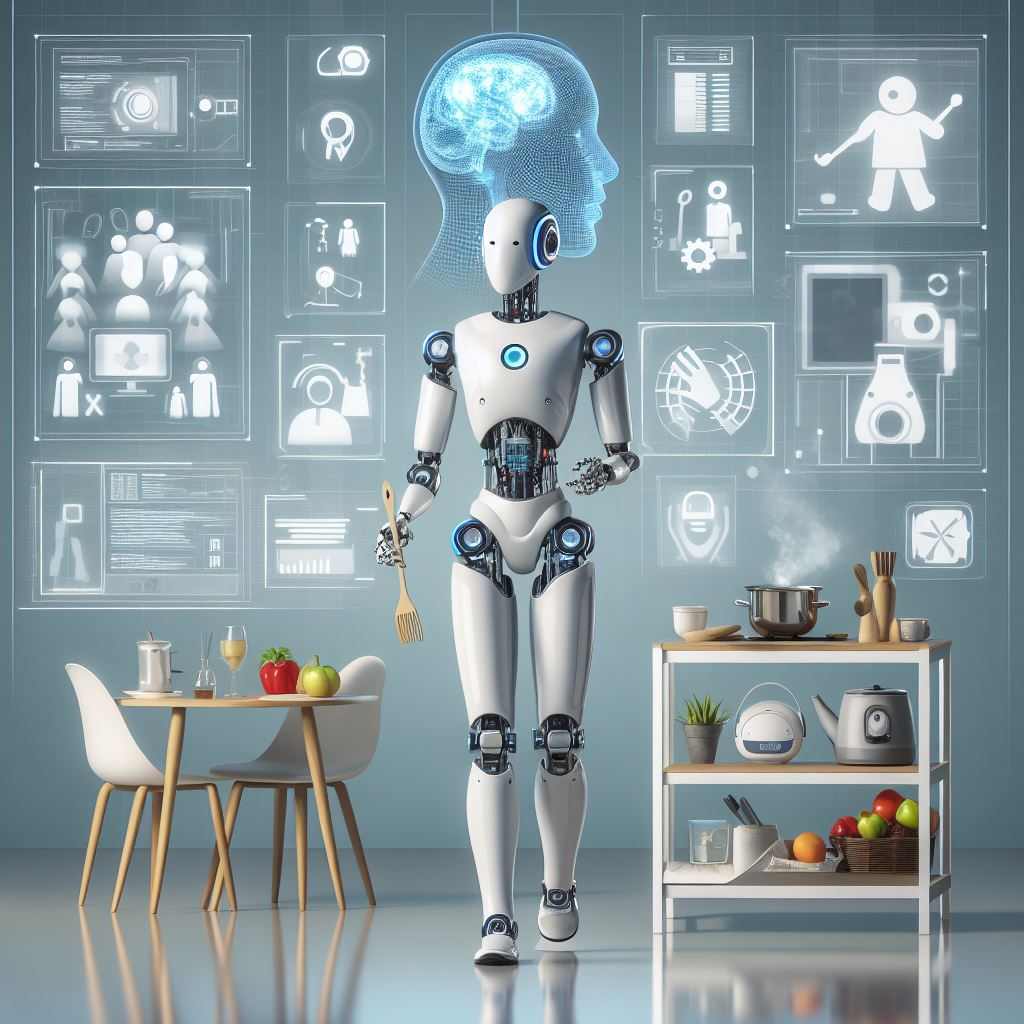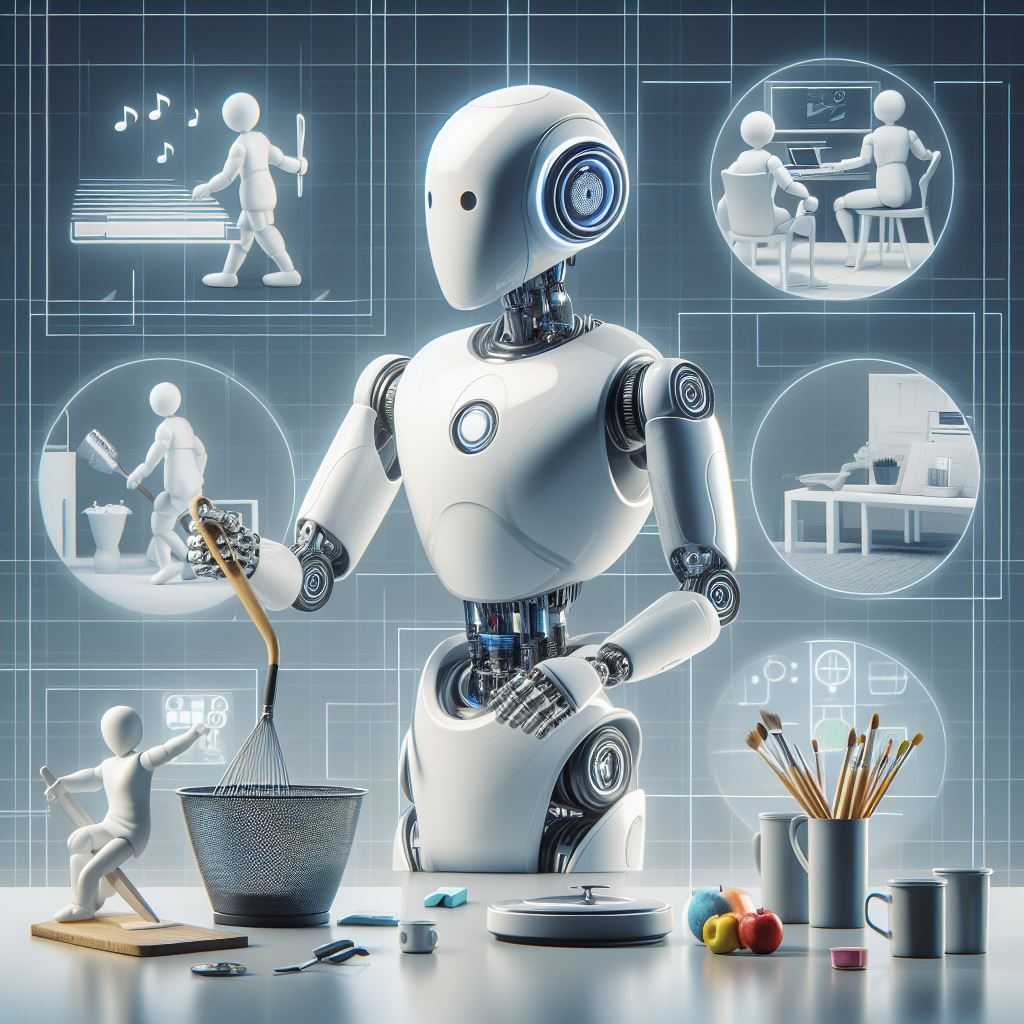What is AI?
AI is like teaching machines to think and act like us. They can learn, make decisions, solve problems, understand what they see, and get what people mean when they talk.
AI makes computers or robots smart by copying how our brains work. By looking at how we think and learn, we make software that can think on its own.

How does AI work?
AI uses big amounts of data and smart steps to work. AI learns from patterns in the data. AI isn’t just one step. It’s a whole system that learns, solves problems, and gives advice.
Here’s a simple way to see how AI works:
Input The first thing AI needs is input. This means someone has to gather the data AI will use. The data can be words, pictures, or speech. It’s important that AI can understand the data. Also, it’s key to know what the data means and what result you want.
Processing Next, AI takes the data and figures out what to do with it. AI looks at the data it already knows and uses what it has learned to handle new data.
Outcomes Finally, after AI processes the data, it guesses what will happen next. This part checks if AI’s guesses are right or wrong.

Key concept in AI
Machine learning (ML) is a part of AI that lets computers learn from data to find patterns and make choices with little help from people.
Pedro Domingos talks about 5 groups in ML in his book:
- Symbolists: Use logic to solve problems backwards.
- Connectionists: Study brain connections to make networks that understand data. Deep Learning is from this group.
- Evolutionaries: Use ideas from biology to make algorithms that change and adapt on their own.
- Analogizers: Use comparisons to solve problems.
- Bayesians: Use math to figure out what’s not likely and find solutions.
There are 4 ways ML learns:
- Supervised Learning: Learns from clear examples to apply to new situations.
- Unsupervised Learning: Watches and finds patterns on its own, like how we think.
- Semi-supervised Learning: Uses both clear and unclear examples, mostly the unclear ones.
- Reinforcement Learning: Learns by trying and getting rewards or penalties. This doesn’t need much data.
Deep learning (DL) is a type of machine learning that uses layers of processing, like how our brains have layers of neurons.
Our brains served as the inspiration for neural networks (NNs), which are machine learning models. They mix different factors to get a result. They learn rules and adjust until they get it right.
Cognitive computing (CC) is another AI type. It does tasks or makes decisions for people, dealing with unclear situations and working independently on what it knows.

Importance of AI
AI is important because it can do tasks over and over without getting tired. It helps us by doing big computer jobs well.
AI makes things we use smarter. For example, Siri on Apple products. It can work with lots of data to make better security systems, help with investing, and more.
AI learns from data and gets better over time. It can figure out patterns and learn new things, like recommending products online.
AI can look at a lot of data deeply with something called neural networks. This helps do things like finding fraud or detecting cancer more accurately.
AI is good at using data to find answers. Having good data can give you an edge over others. But we have to use AI in a good and fair way.
Conclusion:
AI systems are very complicated and difficult to understand for people of different backgrounds other than computer science. If you want to survive in this world, you will have to learn AI. AI is very expensive to maintain, and it is not possible for normal companies to create a complex AI system. That is why today AI models and APIs for AI are available, which can be used to create your own AI system. .
References:
https://www.opentrends.net/en/article/basic-concepts-artificial-intelligence
https://www.sas.com/en_in/insights/analytics/what-is-artificial-intelligence.html





